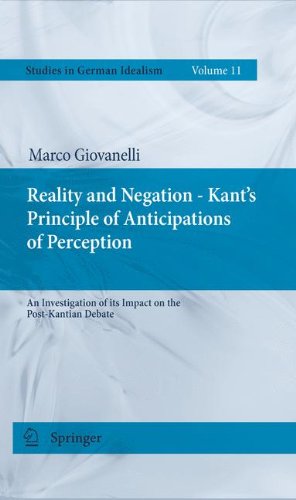

Most ebook files are in PDF format, so you can easily read them using various software such as Foxit Reader or directly on the Google Chrome browser.
Some ebook files are released by publishers in other formats such as .awz, .mobi, .epub, .fb2, etc. You may need to install specific software to read these formats on mobile/PC, such as Calibre.
Please read the tutorial at this link: https://ebookbell.com/faq
We offer FREE conversion to the popular formats you request; however, this may take some time. Therefore, right after payment, please email us, and we will try to provide the service as quickly as possible.
For some exceptional file formats or broken links (if any), please refrain from opening any disputes. Instead, email us first, and we will try to assist within a maximum of 6 hours.
EbookBell Team

4.8
74 reviewsKant, in the Critique of Pure Reason, only dedicates a few pages to the principle of Anticipations of Perception and only a few critical studies are outspokenly dedicated to this issue in recent critical literature. But if one considers the history of post-Kantian philosophy, one can immediately perceive the great importance of the new definition of the relationship between reality and negation, which Kant’s principle proposes. Critical philosophy is here radically opposed to the pre-critical metaphysical tradition: "Reality" no longer appears as absolutely positive being, which excludes all negativity from itself, and "negation" is not reduced to being a simple removal, the mere absence of being. Instead, reality and negation behave as an equally positive something in respect to one another such that negation is itself a reality that is actively opposed to another reality. Such a definition of the relation between reality and negation became indispensible for post-Kantian Philosophy and represents a central aspect of Kantian-inspired philosophy in respect to Leibnizian metaphysics. The present work therefore departs from the hypothesis that the essential philosophical importance of the Anticipations of Perception can only be fully measured by exploring its impact in the Post-Kantian debate.